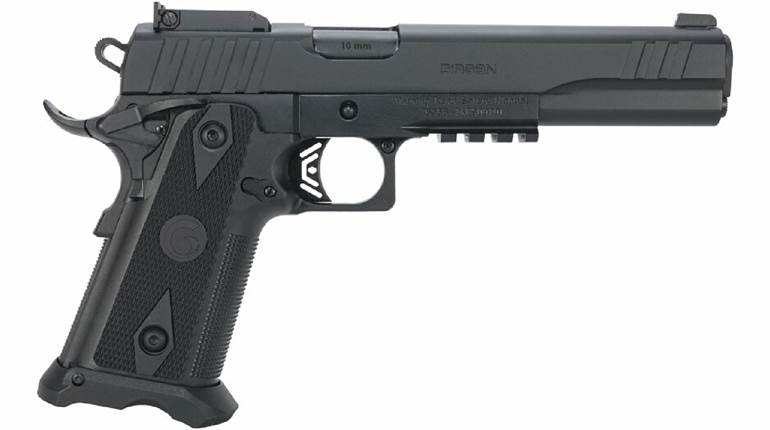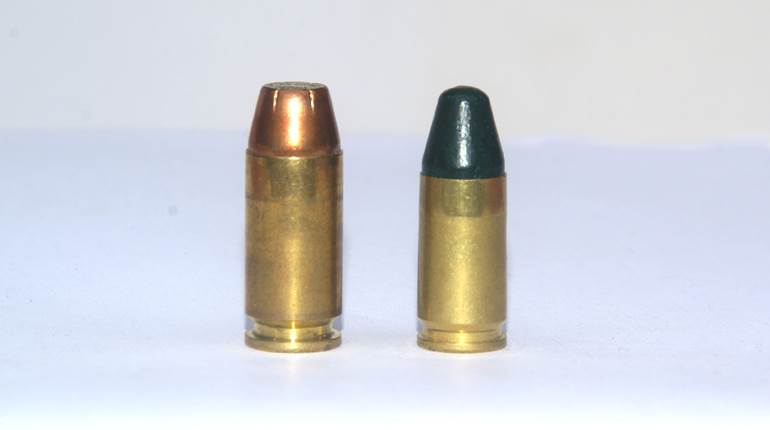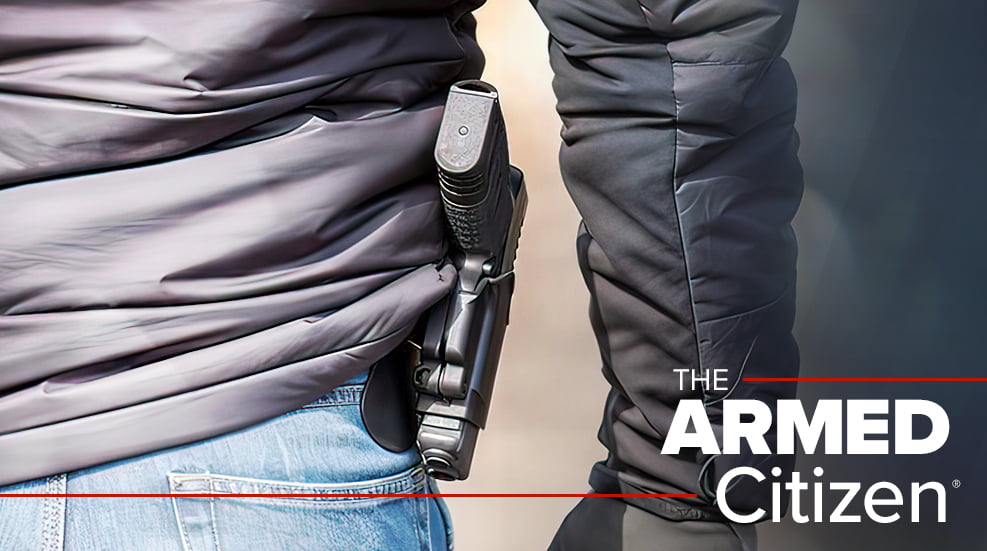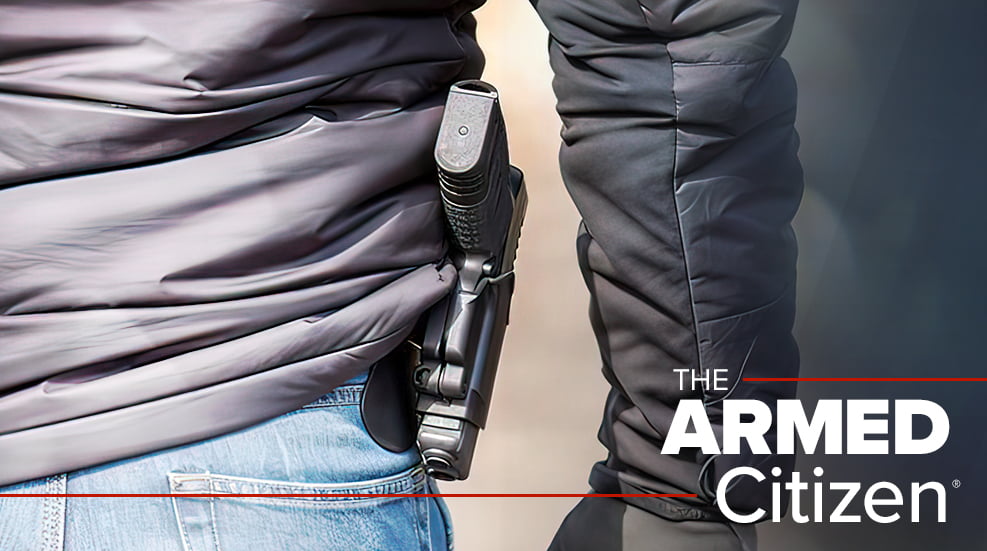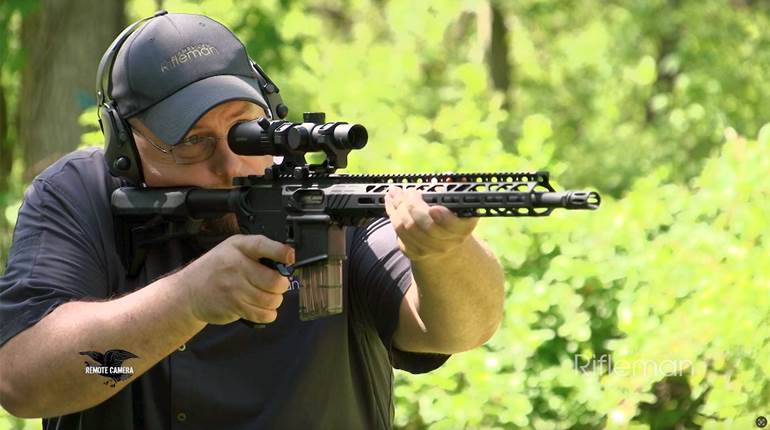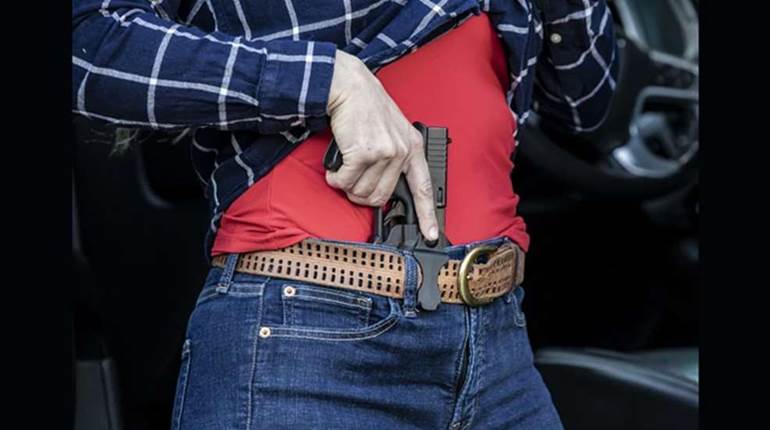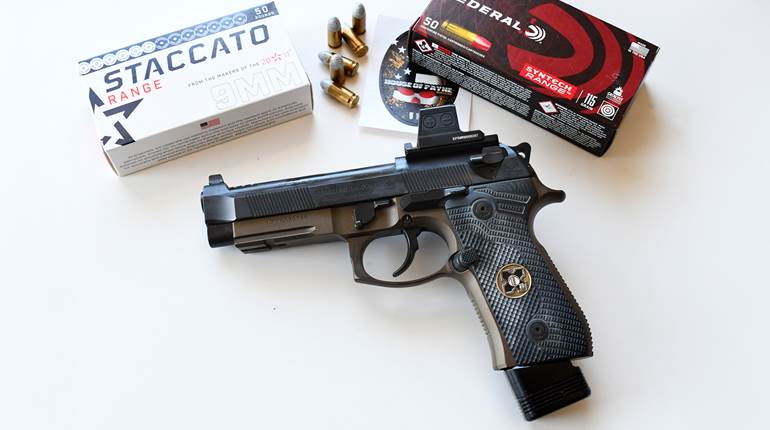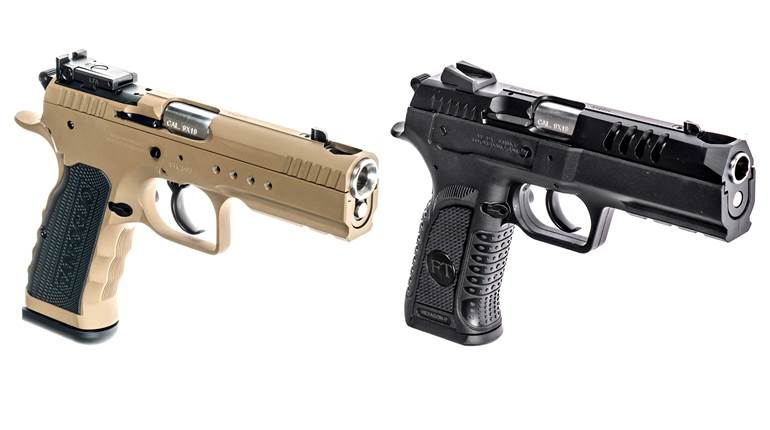
9/11/2012
The pocketable 9 mm semi-auto is an interesting balance of form and function. While remaining small enough to conceal, it offers a greater level of stopping power than the sub-caliber pocket rockets in .32 and .380. While some companies have recently released slim, compact, single-stack 9 mms into the market, Kel-Tec of Cocoa, Fla., has been producing a steady stream of its PF-9 pistols since 2006.
The PF-9 successfully straddles the gap between Kel-Tec's larger double-stack P-11 in 9 mm and the diminutive P3AT in .380 ACP. The PF-9 carries 7+1-rounds of 9 mm ammunition. Just like the company’s other pocket autos, it has a locked-breech design, which allows the pistol to weigh less while keeping the slide easy to manually cycle. The steel slide is topped with a useful set of three-dot sights. The rear sight can be adjusted for windage using the provided Allen key. The slide is fitted with a bushing-less 3.1-inch barrel with the rear lock up milled into the ejection port.
The trigger is a true double-action-only that operates an exposed hammer. This pistol has no external safeties, but an internal safety prevents the pistol from firing unless the trigger is pulled. The PF-9's trigger has a long, smooth stroke that swings much like a J-frame revolver, but without the stacking and trigger weight. While J-frames can have a trigger pull of 10 pounds or more, the PF-9 gauged at just 5 pounds, 8 ounces. Once you get used to a semi-auto trigger with a revolver-like length of pull, it’s quite comfortable to work.
The slim grip frame is textured for positive traction and is long enough to provide a true two-finger grip. If you want a little more support, the pistol arrives with an extended base plate to swap out with the flat base plate on the magazine. You can also order a magazine extension from Kel-Tec that provides an additional round. The low-profile magazine release is located behind the trigger guard on the left side of the frame. The slide catch, also on the left, locks the slide open when the last shot is fired.
Breaking down the PF-9 is a simple process that starts with removing the magazine and verifying the pistol is unloaded. Lock the slide open with the slide catch and then use a 9 mm case rim or a tool to remove the assembly pin located on the left side of the frame. Release the slide to move it forward off of the frame, and then remove the recoil assembly and barrel from the slide. The polymer frame contains an aluminum rail block for the steel slide to ride against. The use of aluminum and polymer keeps the unloaded weight of the PF-9 to a trim 12.7 ounces. It's also one of the flattest 9 mms made, with a width of .88 inches.
The frame contains a molded-in tactical rail for attaching compact laser and light accessories. While several excellent products are available to fit this rail, the addition of a blocky rail device may get in the way of comfortable carry. Laserlyte offers a frame-mounted solution with its SML laser sight, which is compatible with most pocket and in-the-waistband holsters. Customers can choose between the black SML and the new Zombie green versions. The SML proved to be easy to attach, operate and carry. Once a laser like this one is mounted to a pocket pistol, checking the laser should become part of routine maintenance. This includes swabbing the laser diode to remove dust and debris, verifying the batteries are still fresh and checking the various screws for tightness. This only adds a minute or two to the routine, but it is well worth the time.
The PF-9 is the right shape and weight to fit just about anywhere a person would choose to carry a concealed pistol. Sticky Holsters provides a carry system with the same level of flexibility. At first glance, its products look like a quality pocket holster, which is a role they fill with ease. However, the self-securing surface of the holsters allows the holster to operate as a clip-less inside-the-waistband holster. Just set the holster where you want and it will stay put until it is intentionally adjusted. Adding the modular Sticky Holster Ankle Biter rig quickly converted the holster for all-day ankle carry. It’s a comfortable system for concealed carry that easily adjusts to fit changes in your wardrobe or carry needs.
Taking the PF-9 to the shooting range was a positive experience. The sights, unlike some pocket pistols, were easy to see and to adjust. While slim, the grip frame is hand-filling to help manage the sometimes stout level of felt recoil. Ammunition testing went well though, with the PF-9 digesting a variety of full-metal jacket and hollow-point loads without jams or failures. This pistol is safe to fire with +P ammunition, but the company recommends it be used sparingly. It's not realistic to expect such a small, lightweight pistol to be pleasant to shoot with +P loads, and it's not. While standard pressure loads keep the recoil at or below .38 Spl. J-frame revolver levels, +P ammo is quite punishing.
Reducing the kick of a pocket pistol can work in favor of improved accuracy. With this in mind, it seemed reasonable to take testing a step further. By working with a variety of available standard pressure 9 mm configurations it was possible to check for both accuracy and reduced recoil. Using both of these criteria, out of the brands tested, three loads quickly moved to the head of the class.
This pistol will produce solid, center-of-mass target firing off-the-bench at 25 yards. But where the PF-9 really shined was during off-hand defensive drills with targets set between 10 to 15 yards. Formal accuracy testing for this pistol was conducted using five-shot groups fired off-hand with the targets at 12 yards. The lowest level of felt recoil was produced using DoubleTap's 80-grain Barnes TAC-XP hollow-point, which produced groups averaging 1.85 inches at 12 yards. The trade off for less kick from this fast little round was a bit more flash and noise than the other loads. The Hornady 115-grain Z-Max round turned in the tightest groups, averaging 1.75 inches, but it also produced the most felt recoil. The best all-around cartridge for low recoil and low muzzle flash, with a group average of 1.9 inches, was the HPR 124-grain jacketed hollow point.
Choosing a concealed-carry pistol always involves balancing its size against its caliber. Chambered for the popular 9 mm cartridge, the PF-9 has enough power to get the job done. Its thin profile and light weight make it compact enough for pocket, inside-the-waistband and ankle carry. The trigger and sights are excellent for a pocket gun, and it's priced to fit most budgets. Even though a variety of 9 mm pocket rockets are available these days, the PF-9 should be on the list of options to consider.
Manufacturer: Kel-Tec CNC Industries; www.keltecweapons.com
Model: PF-9
Action: Double-Action Only
Caliber: 9 mm
Finish: Blued
Grips: Polymer
Sights: 3-Dot, Adjustable Rear
Barrel Length: 3.1”
Overall Length: 5.85”
Height: 4.3”
Width: .88”
Weight: 12.7 ozs., Unloaded
Capacity: 7+1 Rounds
Trigger Pull: 5 lbs.
Twist: 1:10” RH
Rifle Grooves: 6
Suggested Retail Price: $333 (Blued); $377 (Parkerized); $390 (Hard Chrome)














